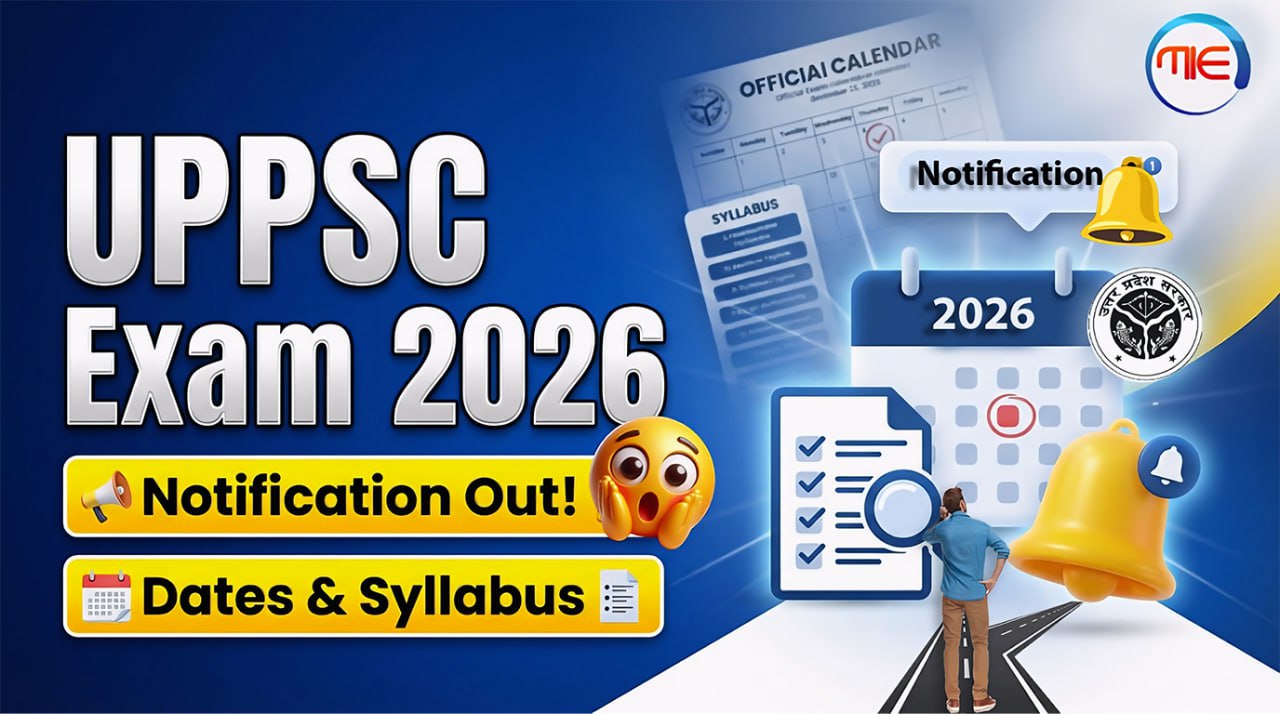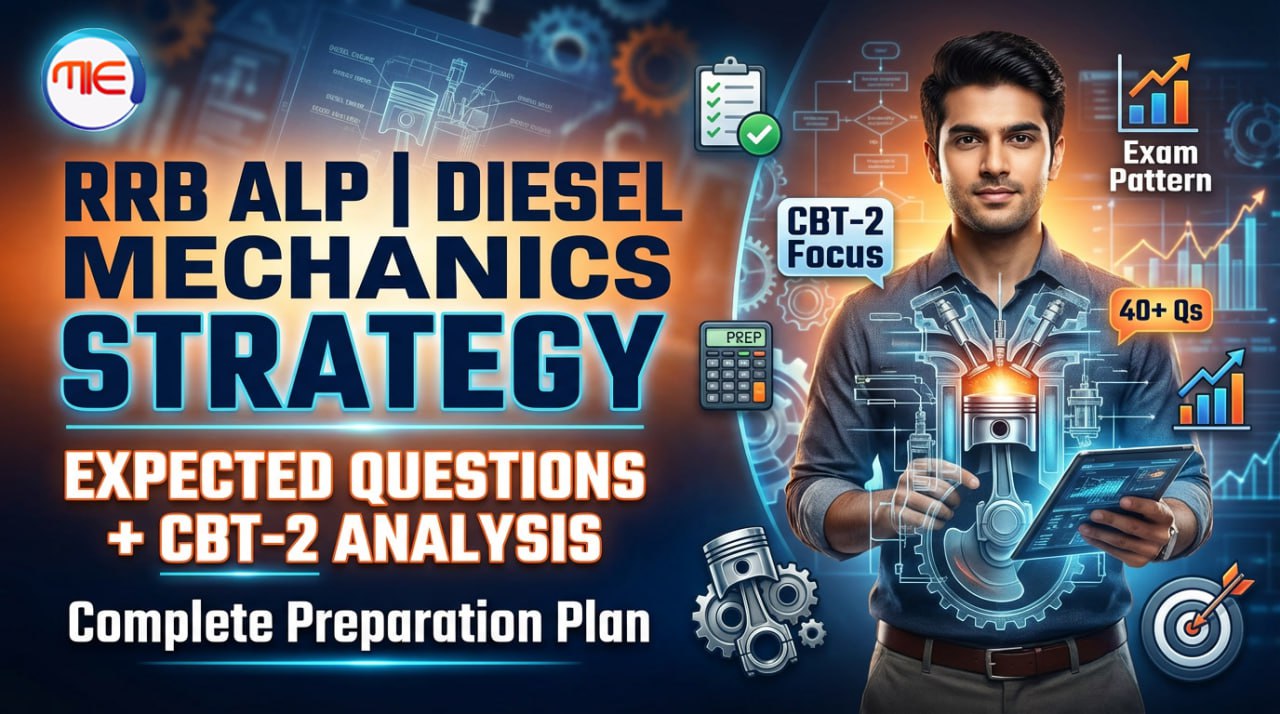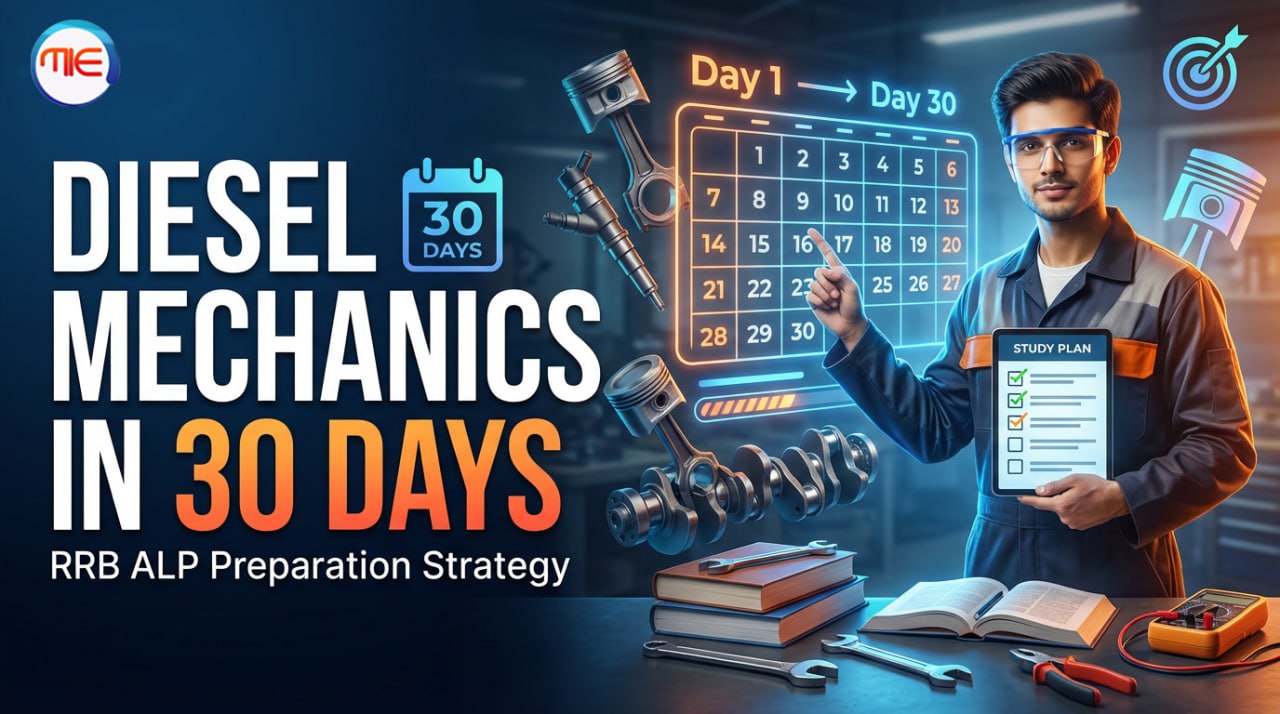Are you an SSC JE aspirant who treats mock tests like just another quiz? You sit down, attempt the questions, get a score, and move on. If so, you're missing out on the single most powerful tool in your SSC JE preparation arsenal. Mock tests aren't just for practice; they are the high-stakes dress rehearsal for your big day. The real game-changer isn't the score you get, but the mindset you bring to the test and, more importantly, the analysis you perform after it.
This blog post will help you move beyond simply taking a test and equip you with the strategic mindset needed to truly master the SSC JE exam. We'll decode the entire process, from preparing your mind to meticulously analyzing your performance, ensuring every mock test brings you one step closer to your dream of becoming a Junior Engineer.
Before you even click "Start," you need to adopt the right psychological approach. A mock test is not a casual study session. It is a full-fledged simulation of the SSC JE exam environment.
Treat It Like the Real Exam: Choose a quiet, distraction-free space. Keep your phone away. Use a timer that mimics the official exam duration. This mental and physical preparation helps you build the stamina and focus required for the real deal.
Embrace the Pressure: It’s natural to feel nervous. Acknowledge this feeling, but don't let it overwhelm you. Mock tests are the safe space to experience and manage exam pressure. The more you practice under pressure, the more confident and calm you will be on the actual day.
Focus on Process, Not Just the Score: While the score is a key indicator, your primary goal is to refine your strategy. Learn to prioritize questions, manage your time, and identify your thought process for each problem. The score is a result of a good process, so focus on the process first.
Success in a mock test, and in the SSC JE exam, begins long before you start the timer. A well-defined strategy is your roadmap.
Understand the SSC JE Exam Pattern:
Paper-I (CBT): 200 questions, 200 marks, 2 hours.
General Intelligence & Reasoning: 50 questions (50 marks)
General Awareness: 50 questions (50 marks)
General Engineering (Civil/Mechanical/Electrical): 100 questions (100 marks)
Negative Marking: 0.25 marks deducted for each incorrect answer.
Plan Your Time Allocation: Before every test, have a clear idea of how much time you will dedicate to each section. A smart SSC JE exam strategy is to tackle the sections that are less time-consuming and highly scoring first.
Suggested Time Allocation for Paper-I
Once you're in the test, a systematic approach will help you maximize your score.
The 3-Round Rule: This is a proven technique for time-bound exams.
Round 1 (Easy): Quickly scan through all 200 questions. Solve all the questions you are 100% confident about. Don’t get stuck anywhere. This builds momentum and secures marks early.
Round 2 (Tricky): Go back and attempt the questions you had marked as "maybe" or "time-consuming." These are the problems where you need a bit more thought or calculation.
Round 3 (Calculative/Difficult): Only if you have time left, revisit the toughest or most calculative problems. Be mindful of the negative marking and only attempt if you have a high probability of success.
Don't Let Ego Win: Never get stuck on a single question. If a problem seems too hard or is taking too long, mark it for review and move on. Your goal is to solve as many questions as possible correctly, not to prove you can solve one difficult question.
A mock test is useless without a thorough analysis. This is where you transform your effort into real progress. Schedule at least 2-3 hours for this process on the same day as the test.
Deconstructing Your Performance: A Strategic Analysis
Not Analyzing the Test: This is the biggest mistake. Just attempting tests without analysis is like running a race without checking your pace or strategy.
Focusing on a Single Section: Don't neglect General Awareness or Reasoning. They can be high-scoring sections that give you a significant edge.
Not Simulating Exam Conditions: Taking a mock test with distractions or without a timer defeats its entire purpose.
Getting Demotivated by a Low Score: A low score is a learning opportunity. Use it to identify what went wrong, fix your mistakes, and see your score improve in the next test.
Q1: How many mock tests should I take?
A: A good frequency is 2-3 full-length mock tests per week in the final 1-2 months leading up to the exam. In the earlier phases of preparation, one mock test a week is sufficient.
Q2: Should I take mock tests before completing my syllabus?
A: Yes, you should. Taking a mock test even with an incomplete syllabus helps you get familiar with the exam pattern, understand the weightage of topics, and learn where you stand.
Q3: How do I improve my speed and accuracy?
A: Speed comes from consistent practice. Accuracy comes from a strong grasp of concepts. Regular mock tests and their detailed analysis will naturally improve both.
Mock tests are not a passive activity; they are an active part of your SSC JE preparation. They are a tool for self-assessment, a platform for strategy refinement, and a pathway to building unwavering confidence. By adopting a professional mindset, a strategic approach, and a rigorous analysis routine, you can transform your mock test scores and decode the secret to cracking the SSC JE exam.
Ready to transform your preparation? Start your mock test journey with the right mindset today and get one step closer to your dream of becoming a Junior Engineer!

Makeiteasy










Leave a Comment